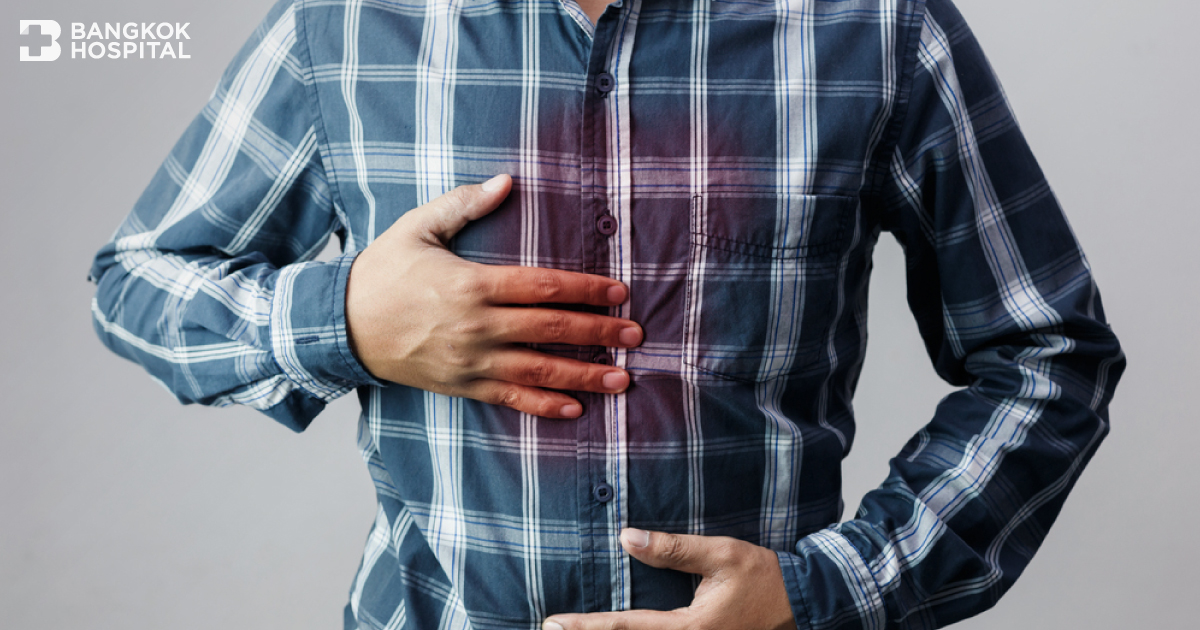
Gastroesophageal Reflux Disease (GERD)
Gastroesophageal reflux disease (GERD) is a condition when the stomach sphincter is open and the contents, which contain acid or gastric juice, flow into the esophagus.
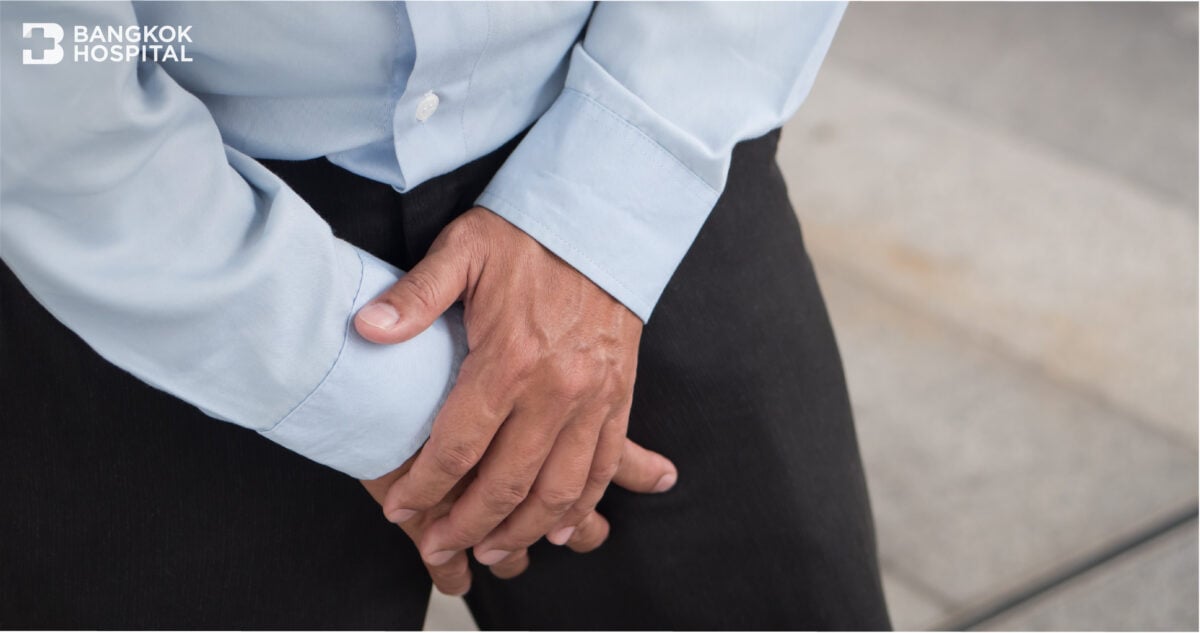
Minimally Invasive Prostate Surgery: A Worry-Free Treatment

Behavioral Adjustments for Treating Gastroesophageal Reflux Disease (GERD)
If you have symptoms of gastroesophageal reflux disease (GERD) and have been taking medication for more than 2 weeks without improvement, you must see a gastroenterologist. Treatment must include changes in daily behavior, such as exercise and diet, in addition to medication or surgery, which is considered a last resort.

Sexual dysfunction, address deterioration before apathy
From a survey in Thailand in 2004, among Thai men nationwide, aged 40 - 70 years, numbering 1,250 participants, it was found that 43 percent of Thai men have erectile dysfunction. It is projected that the number of males experiencing erectile dysfunction will increase to 170 million by the year 2025. Therefore, erectile dysfunction is an issue that should not be overlooked.
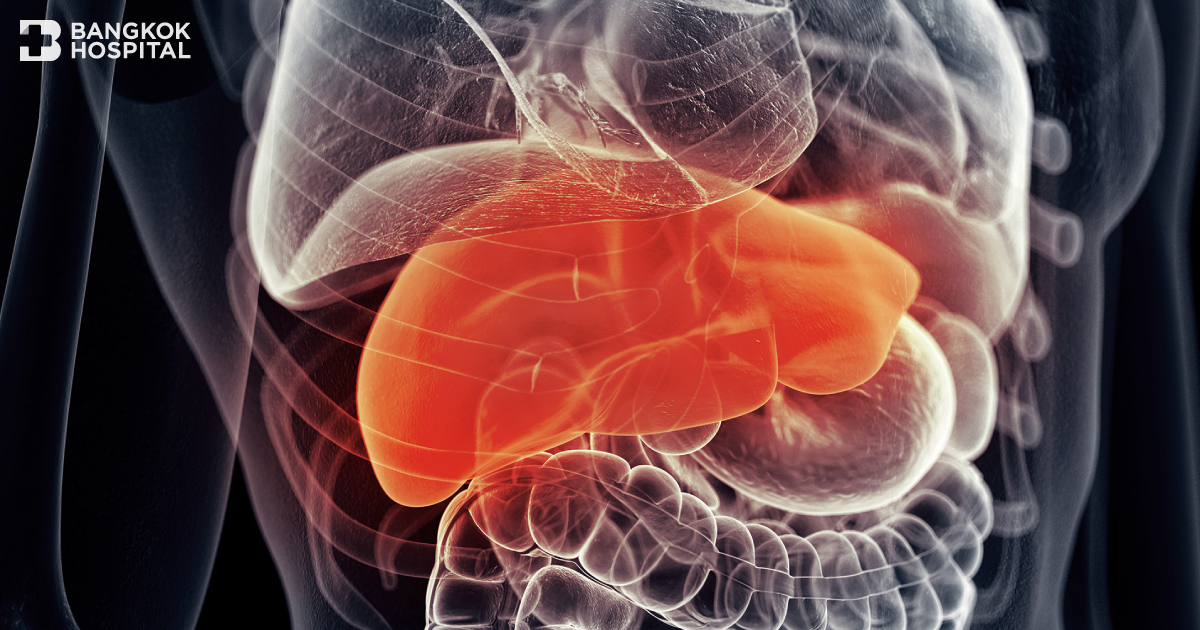
Fatty liver risk from hidden obesity
Fatty liver disease is a common liver condition found among Asians and Thais. Currently, there is an increase in the incidence of fatty liver or fatty liver disease in Thai patients. Nowadays, there is a device called Fibroscan with CAP (Controlled Attenuation Parameter) that helps doctors diagnose and screen at-risk individuals efficiently.

Gastroesophageal Reflux Disease (GERD)
Laryngopharyngeal reflux (LPR) is a condition resulting from gastric fluids flowing back into the esophagus, reaching up to the throat and voice box. The duration of treatment depends on the individual patient, but most often, symptoms improve within a 2-week period. This condition may recur.
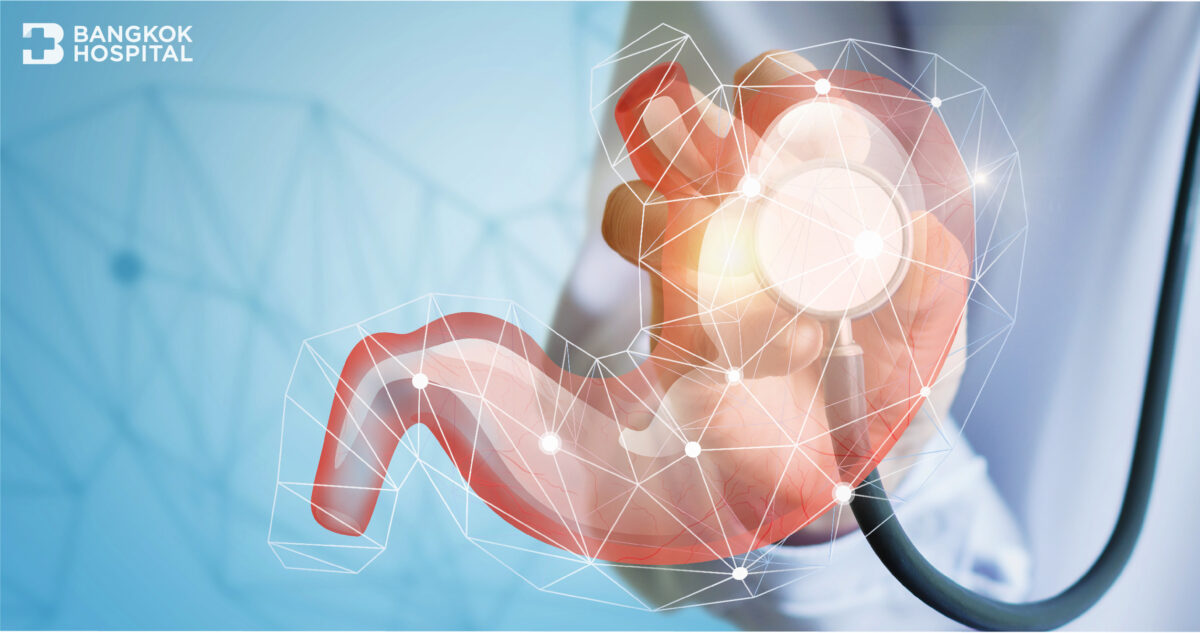
Examining the condition of gastroesophageal reflux
Examination of gastroesophageal reflux should be done by seeing a gastroenterologist or a specialist in the digestive system to discuss and check symptoms to ensure they are caused by reflux. Testing methods can examine problems of the esophagus, stomach, and small intestine.

Treatment of Gastroesophageal Reflux Disease (GERD)
Treatment will depend on the symptoms and age of the patient. Your physician may recommend medication to reduce acid in the stomach in the early stages of GERD.

GERD: Acid Reflux that Should Not Be Ignored
GERD is caused by abnormalities in the closure and opening of the valve between the esophagus and stomach, leading to acid or digestive juices from the stomach flowing back into the esophagus along with the ingested food. To conclude that it is GERD, it must be a condition that has been constant and ongoing for a long time, occurring more than 2 times per week, resulting in symptoms of illness.
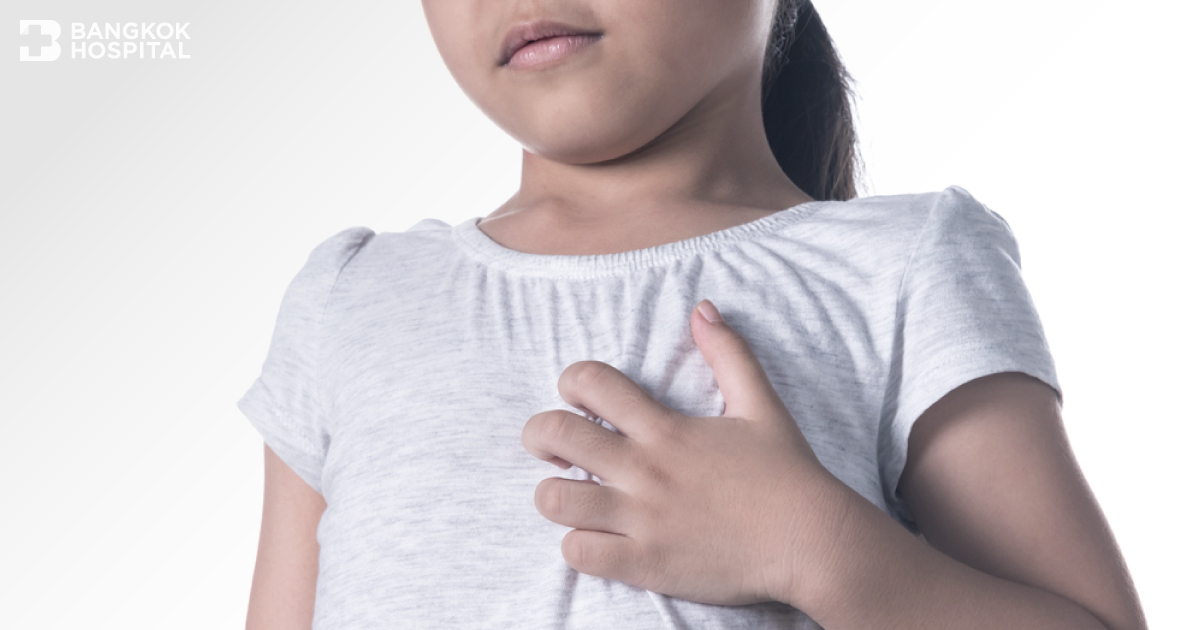
GERD in Children
The hardest and most difficult component of diagnosis in children is identifying clearly if a child has heartburn, normal acid reflux or acid reflux that is an indication of Gastroesophageal Reflux Disease (GERD).

10 Degenerative Conditions Related to Aging
As we are getting older, our body and organs begin to deteriorate and become more susceptible to a variety of diseases. The timing varies among individuals depending on several factors, including: lifestyle, diet, stress, etc. In order to maintain a perfect health, you have to take care of your body.
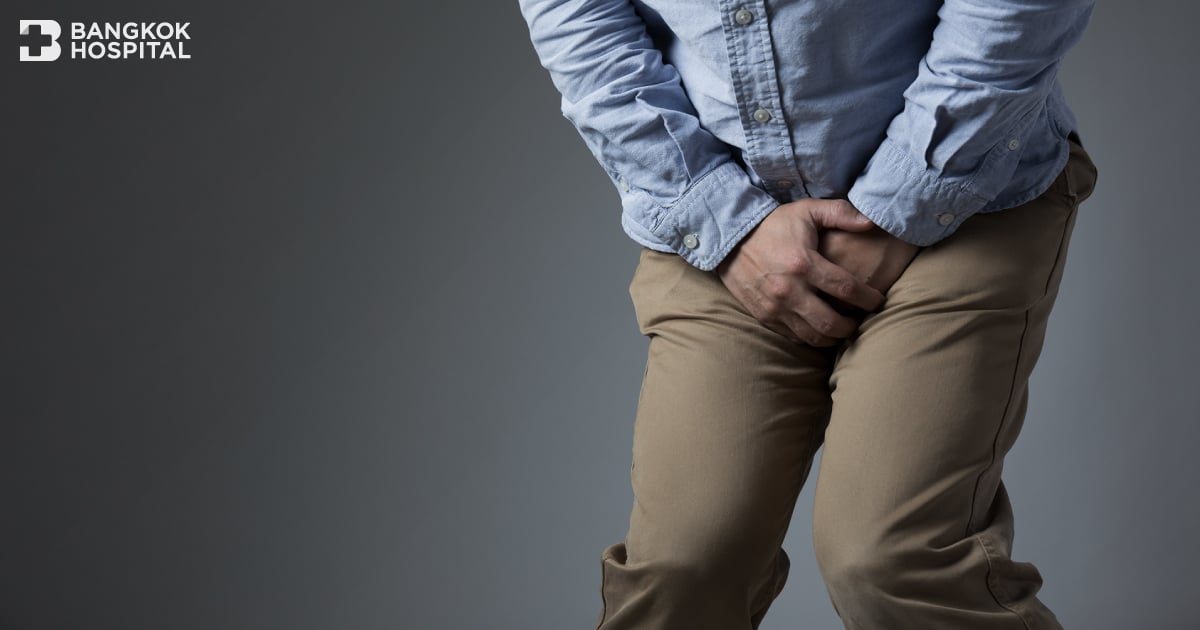
Urinary Incontinence | Bladder control problems should not be overlooked
Urinary incontinence, is the loss of bladder control, such as and related symptoms such as frequent urination and intense urge to urinate. Women who have had 2-3 vaginal births are more likely to have urinary incontinence.
